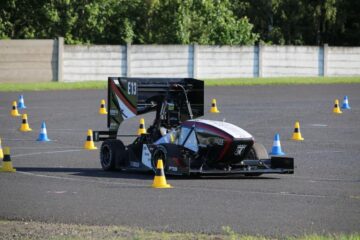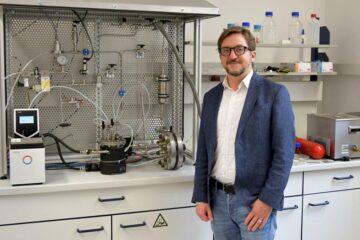Autonomous Service Robot for Vacuuming Floors

<strong>Technology</strong><br>
A new exploration method for mobile robots is especially suitable for home and office environments. The robot also provides a flexible cleaning system, allowing adaptation to any kind of floor surface with any kind of obstacle and avoiding unnecessary repeat cleaning of the same area.<br><br> Self-localisation means that the method does not require a precise global map, nor does it rely on external markers located in the rooms or areas to be cleaned. Instead, the robot creates its own rough map by scanning the environment, so that the map comprises every obstacle which the robot can then avoid. Iterative scanning allows adaptation to arbitrary obstacles.<br><br> At each cleaning the surrounding area is scanned and simultaneously cleaned using an extendible arm with changeable cleaning elements. This new approach allows the robot to clean any floor space fast and thoroughly, while using little power. <br><br> By using standard microcontrollers the cost of robotic vacuum cleaners is affordable for personal use, as demonstrated by a fully-functional prototype. <br> <br> <b>Benefits:</b> <ul> <li>Self-control of a robotic vacuum cleaner</li> <li>Automatic control and scanning mechanism</li> <li>Automatic creation of a global map</li> <li>Self-localisation</li> <li>Extendible arm for flexible cleaning</li> <li>Sensitive bumper including a contact sensor</li> <li>Changeable brushes</li> </ul><br><br> <strong>IP Rights</strong><br> German Patent DE 19 916 427 B4 <br> US Patent US 6 370 453 B2 <br> <br> <strong>Origin</strong><br> Beuth Hochschule für Technik Berlin, Germany</p>
Weitere Informationen: PDF
ipal GmbH
Tel.: +49 (0)30/2125-4820
Ansprechpartner
Dr. Dirk Dantz
Media Contact
Alle Nachrichten aus der Kategorie: Technologieangebote
Neueste Beiträge

Ideen für die Zukunft
TU Berlin präsentiert sich vom 22. bis 26. April 2024 mit neun Projekten auf der Hannover Messe 2024. Die HANNOVER MESSE gilt als die Weltleitmesse der Industrie. Ihr diesjähriger Schwerpunkt…

Peptide auf interstellarem Eis
Dass einfache Peptide auf kosmischen Staubkörnern entstehen können, wurde vom Forschungsteam um Dr. Serge Krasnokutski vom Astrophysikalischen Labor des Max-Planck-Instituts für Astronomie an der Universität Jena bereits gezeigt. Bisher ging…

Wasserstoff-Produktion in der heimischen Garage
Forschungsteam der Frankfurt UAS entwickelt Prototyp für Privathaushalte: Förderzusage vom Land Hessen für 2. Projektphase. Wasserstoff als Energieträger der Zukunft ist nicht frei verfügbar, sondern muss aufwendig hergestellt werden. Das…

















